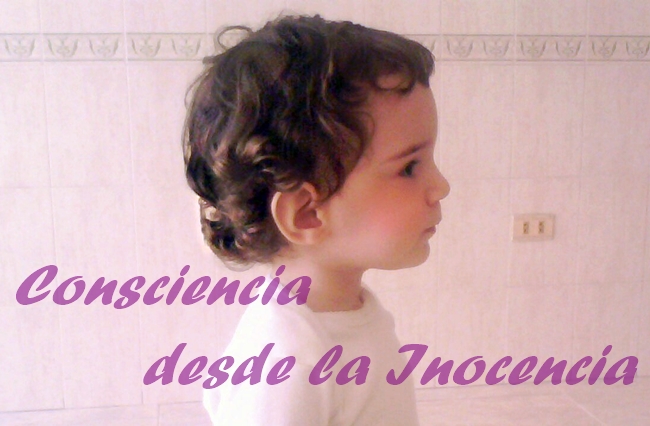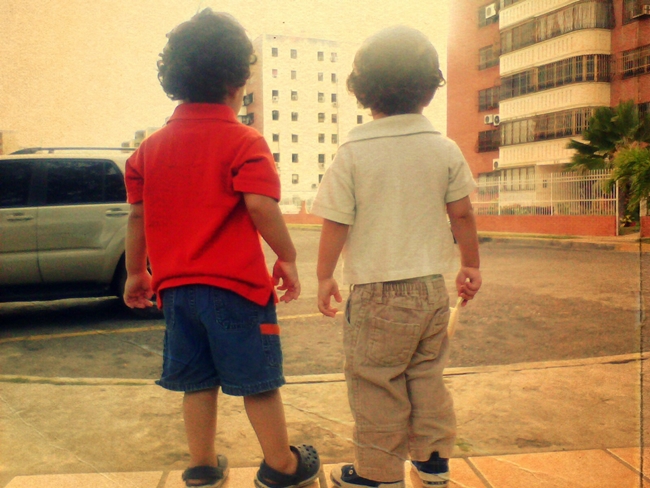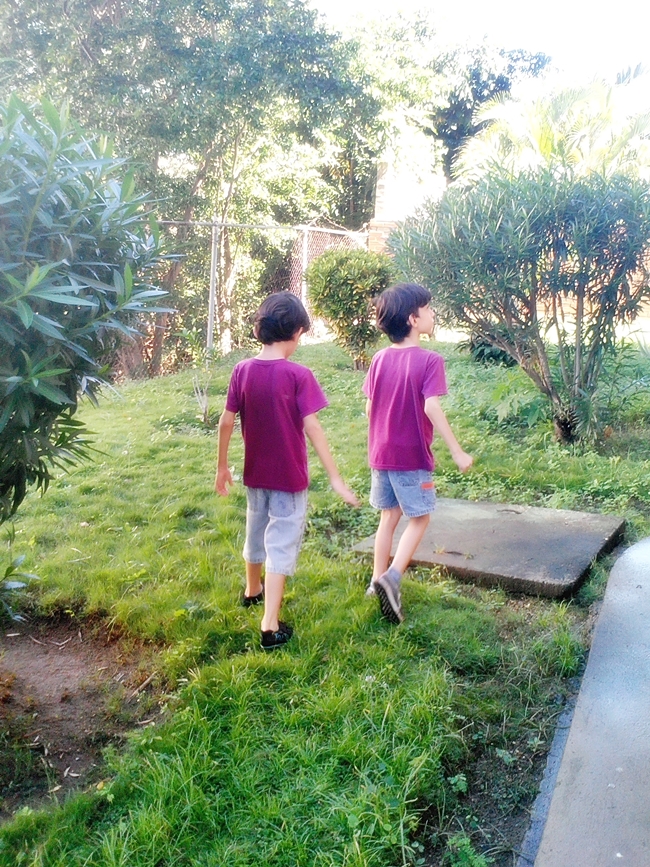
Hola amigos!!
Joel Ventura
Hace unos días mientras recorría mi Twitter me encontré con un escrito que decía algo como: "Antiguamente Padres analfabetos criaban a sus hijos bien educados hoy día padres formados crían hijos maleducados" y entonces yo, reflexioné y me pregunté, ¿por qué es posible esta realidad?
Los padres, por no decir el adulto en general de nuestros días, vive en una sola zozobra. Desde que pone un pie fuera de la cama, lo hace pensando en todo lo que le corresponde hacer ese día y en ese ritmo sigue toda la semana. Muchas veces no puede ni hacer tiempo para hablar con los suyos y tristemente, esto es parte del problema.
Las madres, abuelas o tías con quienes nos correspondió compartir en nuestra niñez siempre tenían tiempo para todo, principalmente porque trabajaban en casa y aunque no eran todos, también había una buena cantidad de padres que le dedicaban tiempo a la educación de sus hijos.
Recuerdo a mi padre cuando en algún momento hacía referencia a la mentira en los niños y decía: Le pegan a los muchachos o los castigan por decir mentiras, pero cuando viene el turco le dicen a los mismos muchachos _"Dile al turco que no estoy"_
Cuando se es niño e inocente, generalmente se siguen los patrones de aquellos quienes nos cuidan, de aquellos que muchas veces no necesitan ni emitir palabra y que, con su sola acción pueden enseñarnos mucho. Desde allí vamos construyendo nuestra conciencia y por tal motivo muchas veces lo que para algunos es incorrecto para otros es una tontería o viceversa.
Cuando lo valores en un hogar están distorsionados, existe un desbalance y por ende el papel de la consciencia en el niño comienza a adquirir importancia.

Según Montessori y los expertos en desarrollo, a la edad de seis años el (la) niño/a deberá tener un comportamiento idóneo, es decir que podrá formar una consciencia moral y tendrá la capacidad de diferenciar lo positivo de lo negativo y surge en mi una inquietud, si esto es así ¿cómo será entonces la conciencia de un niño en la que sus primeros años de vida solo ha sido testigo de cosas malas en su entorno? y pienso entonces que por eso es que muchas veces vemos niños que crecen en hogares con padres alcohólicos y no quieren tener nada que ver con la bebida cuando llegan a la edad adulta o por el contrario niños que siguen el mismo patrón de conducta de sus mayores.
En el primer grupo se encuentra alguien a quien amo y admiro, Mi esposo. Él es el último de tres hermanos y su padre era alcohólico. El me cuenta que desde que era muy pequeño veía el sufrimiento de su mamá cuando llegaba la noche, porque sabía que el comportamiento de su papá era diferente al que solía tener antes de irse en la mañana. El recuerda que su mamá corría y los agarraba a todos y los metía en la cama, apagaba las luces y les decía que se quedaran calladitos y de esa manera él no los tomaba en cuenta cuando venía tomado. Este fue un comportamiento que se mantuvo por un buen tiempo y por el cual Orlando sufría doble, al ver la angustia de su mamá y por el miedo que le sentía a su papá.
En la misma medida que fue creciendo su actitud frente al alcohol y todo lo que él implicaba fue de rechazo total. El sentía que por el cambio que las bebidas alcohólicas producían en las personas, simplemente no eran algo bueno y mucho menos algo que necesitara en su vida.
Si hay algo en lo que debemos invertir tiempo es en la construcción de la conciencia de nuestros niños. Es algo de mucha importancia y de un valor incalculable si lo miramos como la base para la ciudadanía en el mundo. No dejemos en manos ajenas lo que es nuestra responsabilidad.

Hello friends!!!
Joel Ventura
A few days ago while scrolling through my Twitter feed I came across a writing that said something like: "In the old days illiterate parents raised their children well educated today educated parents raise ill-educated children" and then I, reflected and asked myself, why is this reality possible?
Parents, not to say adults in general nowadays, live in a single anxiety. From the moment they set foot out of bed, they do it thinking about everything that the have to do that day and in that rhythm they continues the whole week. Many times they can't even make time to talk to their families and sadly, this is part of the problem.
The mothers, grandmothers or aunts with whom we shared our childhood always had time for everything, mainly because they worked at home and although they were not all, there were also a good number of fathers who dedicated time to the education of their children.
I remember my father at some point referring to lying in children and saying: They beat the boys or punish them for telling lies, but when the Turk comes to get paid, they tell the same boys "Tell the Turk I'm not here"
.
When we are children and innocent, we generally follow the patterns of those who take care of us, of those who often do not even need to utter a word and who, by their actions alone, can teach us a lot. From there we build our conscience and for that reason many times what for some is wrong for others is foolishness or vice versa.

When the values in a home are distorted, there is an imbalance and therefore the role of conscience in the child begins to acquire importance.
According to Montessori and developmental experts, at the age of six years the child should have an ideal behavior, that is to say that he/she will be able to form a moral conscience and will have the ability to differentiate the positive from the negative and a concern arises in me, if this is so, how will be the conscience of a child in which the first years of life has only witnessed bad things in their environment? and I think then that is why we often see children who grow up in homes with alcoholic parents and want nothing to do with drinking when they reach adulthood or on the contrary children who follow the same pattern of behavior of their elders.
In the first group is someone I love and admire, My husband. He is the last of three siblings and his father was an alcoholic. He tells me that from the time he was very little he would see his mom's suffering when night came, because he knew his dad's behavior was different from the way he used to behave before he left in the morning. He remembers that his mother would run and grab them all and put them in bed, turn off the lights and tell them to be quiet and that way he would not take them into account when he came in drunk. This was a behavior that lasted for a long time and for which Orlando suffered doubly, seeing the anguish of his mother and the fear he felt for his father.
As he grew older, his attitude towards alcohol and all that it implied was one of total rejection. He felt that because of the change that alcoholic beverages produced in people, they were simply not a good thing and much less something he needed in his life.
If there is one thing we should invest time in, it is building the consciousness of our children. It is something of great importance and of incalculable value if we look at it as the basis for citizenship in the world. Let's not leave in the hands of others what is our responsibility.

The photographs are of my authorship and property
Life behavior should be based on personal decision. See how your husband was a siblings of three having an alcoholic father but yet chose to stay away from alcohol. At some point, some children are mostly influenced by what they see their parents doing at home. this is why both formal and informal education is very important for life correction.
El comportamiento de vida debe basarse en la decisión personal. Vea cómo su esposo era un hermano de tres hijos que tenía un padre alcohólico, pero decidió mantenerse alejado del alcohol. En algún momento, algunos niños se ven influenciados principalmente por lo que ven que sus padres hacen en casa. por eso, tanto la educación formal como la informal son muy importantes para la corrección de la vida.
Totalmente de acuerdo. Y cada decisión se toma de manera consciente, basada en los valores que se han ido adquiriendo desde que se es niño. En el caso de mi esposo él era testigo del sufrimiento que producía el alcohol en la familia y tomando consciencia de ello decidió que él sería diferente.
Agradezco tu visita y reflexión @agbogo.
Que tengas un excelente día!!
Muy buen reflexión.
_Gracias!
Que tengas un excelente domingo @bonzopoe!!